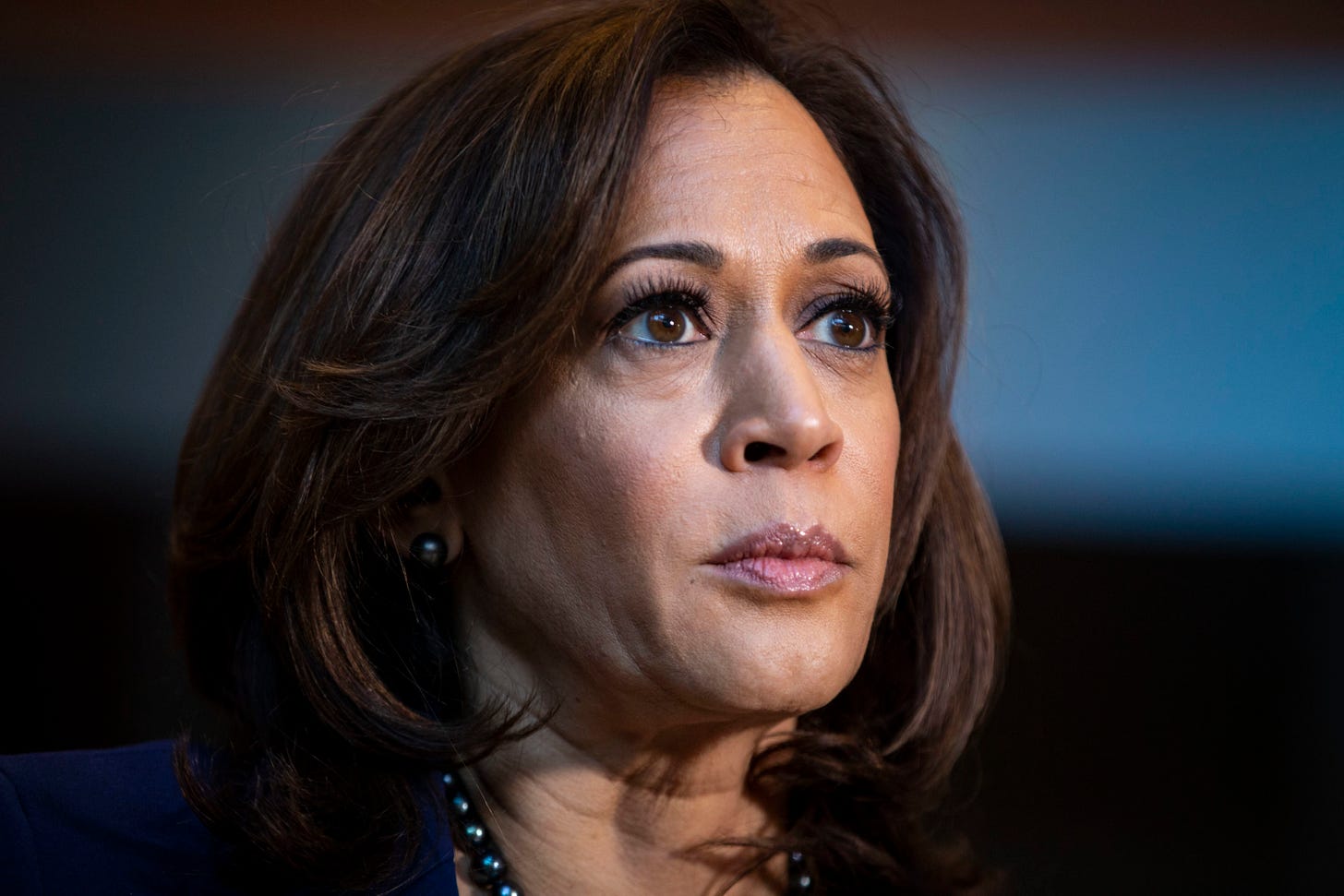Why Kamala Harris' Health-Insurance Comments Were an Unforced Error
Does she want to be the Democratic nominee, or does she want to be president?

Senator Kamala Harris’s Medicare-for-all kerfuffle was the first unforced error of her campaign. Harris co-sponsored Senator Bernie Sanders’s single-payer bill in 2017, incorporated it into her campaign platform, and was fully prepared to endorse its implications on the trail.
Asked by Jake Tapper if people could keep insurance plans they liked (as a majority of people would prefer to do), Harris responded,
Well, listen, the idea is that everyone gets access to medical care, and you don’t have to go through the process of going through an insurance company, having them give you approval, going through the paperwork, all of the delay that may require. Who of us has not had that situation where you’ve got to wait for approval, and the doctor says, well, I don’t know if your insurance company is going to cover this. Let’s eliminate all of that. Let’s move on.
Welp, that’s all for private health insurance, then. Just move on. Buh-bye.
Harris’s assertion that a single-payer system would grant everyone access to medical care and guarantee instant approval is belied by the real-world performance of systems like the U.K.’s National Health Service, which last year saw 4.3 million Britons, or 6.5 percent of the entire country, waiting more than 18 weeks for an operation. The same proportion in the U.S. would constitute over 20 million people, or about the population of Florida.
Despite ample evidence that nationalized health systems deliver inferior treatment, it remains a wildly popular idea when presented just right. A recent Kaiser poll found that 56 percent of Americans favor a Medicare-for-all plan, including 23 percent of Republicans and 81 percent of Democrats.
Why, then, did so many of Harris’s fellow Senate Democrats – minority whip Dick Durbin, former vice presidential nominee Tim Kaine, and Harris’s fellow Senator from California, Dianne Feinstein – decline to follow her lead? They must have read below the top lines.
When pollsters ask about Medicare-for-all and include the accompanying delays of treatment, higher taxes (such a plan would cost upward of $32 trillion over 10 years), and threats to the current Medicare system, support plummets to 32 percent overall.
For Harris, promising free stuff without mentioning the tradeoffs and ramifications may still be a good strategy in the primary. Other successful candidates have done it.
But Harris doesn’t just want to be the Democratic nominee. She wants to be president. Endorsing a policy that opens such easy lanes of attack for Trump (or another Republican nominee) won’t help her in the long run.


